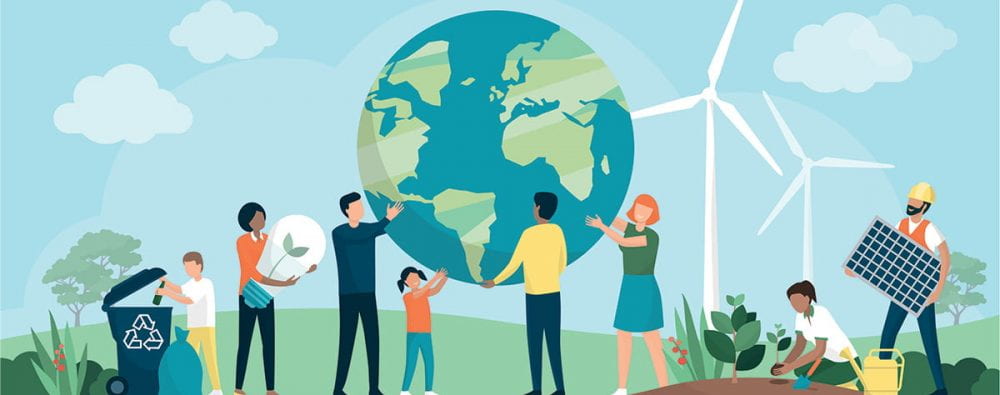Meet Sukkari! Sukkari is an environmentalist and advocate for sustainable living in Riyadh. In her home, she has NO trash! Yes, I said what I said, she has no garbage, and she doesn’t even use a recycling bin. Sukkari lives her life by promoting ways that you can live a more sustainable life at home, and she does this by limiting the amount of plastic usage and composting.
Sukkari’s home
Compost is essential in Sukkari’s home Sukarri has compost in her bedroom for plant leaves. She has a second compost in the kitchen and the third compost in her garden. Sukkari relies heavily on having composts around her house as an alternative to typical trash bins. Sukkari strongly believes in living a waste-free life, and throughout her youtube video, she illustrates ways she can do it.
Clothing
When it comes to clothing, she buys used “clothes.” she believes that clothing companies that prioritize ethics are environmentally friendly. She always makes sure there is nothing wasted, and recycling plays a significant role in her life. Her shoes are made of plastic recycled bottles, and when she doesn’t need a piece of cloth, she makes it as wiping instead of paper. Her socks would be reused to clean plants. Even when she cleans the clothes, she uses Indian natural products to clean naturally. The products can be used 5 to 7 times and then, she put them in the compost to be decomposable.
Food without plastic
To keep up promoting environmentally friendly living, Sukkari makes her food at home too. And all the spices and other food necessities she buys are in wholescale so she can put them in her own glass jars. She even goes further to make her species and food, if possible. For example, she makes her own yeast and milk. As for having water, she uses and refills a water filter is essential so that she doesn’t have to go out and buy/use plastic bottles. She has two water filters, one for the fridge and one for regular use. Go Sukkari on limiting plastic usage!
Sukkari outside home
Furthering the idea of limiting plastic usage, every time Sukkari goes out, she brings whatever she may need, so she doesn’t use plastic. Sukkari has a wooden fork, a wooden spoon, and a reusable bottle of water. She also carries around a wooden straw that is made of bamboo and a basket that she uses if she is going to a bakery for bread. Sukkari always makes sure to inform workers in the stores she visits to not give her a plastic bag or copy of her receipt that way, she does not contribute to plastic or paper waste.
Sukkari does not find her life difficult as many people around her think. She strongly believes that everyone is responsible for the environment, and the more we care about it, the more human we become. So check out Sukkari on youtube and learn about ways you can live a waste-free life too! The link below to Sukkari’s short documentary.
To watch Sukkari’s short documentary.
Also, talk to us on Twitter! We would love to hear from all our Envirojunkies!
